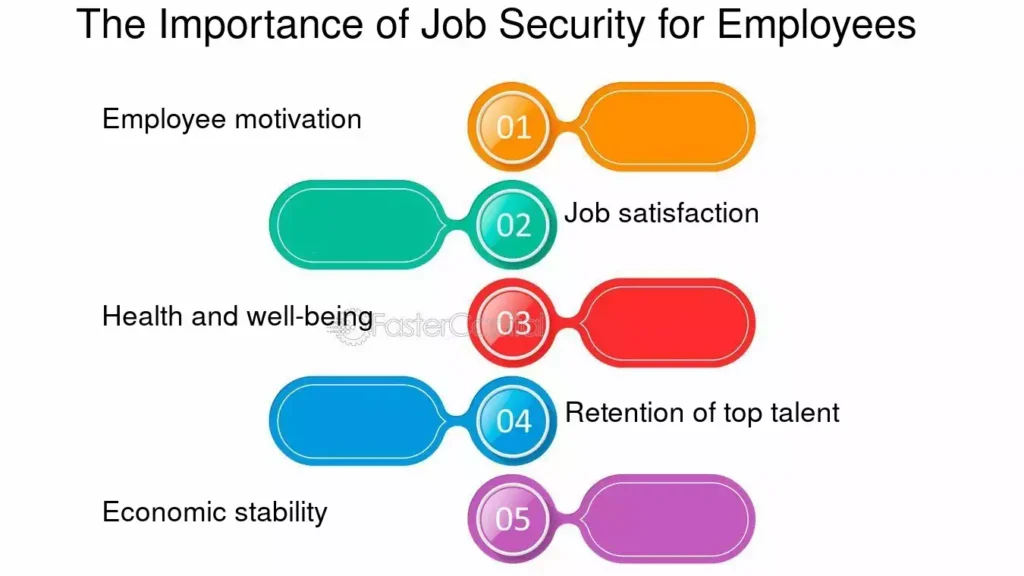The modern workplace is constantly evolving, offering a variety of employment options to suit different needs and preferences. While “at-will” employment has become commonplace, it often leaves both employers and employees feeling uncertain about the future. In contrast, contract employment provides a structured framework that fosters stability and clarity. This article delves into the key aspects of contract employment, highlighting its benefits in terms of job security and predictability.
This comprehensive guide will explore the definition of contract employment, examining its core features and legal implications. We’ll then delve into the specific advantages it offers regarding job security and predictability, covering aspects like duration, responsibilities, and compensation. By understanding these benefits, individuals can make informed decisions about their career paths and employers can gain valuable insights into this increasingly popular employment model.
Contract Employment Defined
Contract employment is a type of work arrangement where an individual agrees to perform specific tasks or services for a defined period, as outlined in a legally binding contract. This contract clearly defines the scope of work, responsibilities, compensation, and duration of the employment relationship. Unlike “at-will” employment, which allows either party to terminate the agreement with minimal notice, contract employment provides both parties with a sense of security and predictability.
The contract serves as a roadmap for the working relationship, outlining expectations and obligations for both the employer and the employee. It typically includes details such as the start and end dates of the contract, the specific tasks to be performed, payment terms, and any relevant performance metrics. By establishing these parameters upfront, contract employment minimizes ambiguity and potential disputes.
Types of Contract Employment
There are various types of contract employment arrangements, each tailored to specific needs and project requirements. Some common examples include:
- Fixed-term contracts: These contracts specify a predetermined duration, after which the employment relationship automatically ends.
- Project-based contracts: These contracts are tied to the completion of a specific project or set of deliverables. Once the project is finished, the contract concludes.
- Freelance contracts: These contracts involve independent contractors who provide services on a project-by-project basis, often without a formal employer-employee relationship.
Job Security Benefits

While contract employment doesn’t offer the same indefinite job security as permanent positions, it provides several benefits that enhance stability and peace of mind.
Firstly, the defined contract period offers a clear timeframe for work, allowing both parties to plan accordingly. Employees can confidently commit to the project knowing their role is secure for the agreed-upon duration. This predictability reduces anxiety associated with potential job loss due to unforeseen circumstances.
Secondly, contract employment often involves specialized skills and expertise. Employers seek out contract workers for specific projects or tasks, recognizing their valuable contributions. This targeted focus can lead to greater job satisfaction and a sense of accomplishment as employees contribute directly to successful project outcomes.
Predictability in Work Arrangements
One of the most significant advantages of contract employment is the inherent predictability it offers. The contract clearly outlines the scope of work, responsibilities, and expectations, eliminating ambiguity and fostering a structured work environment.
Employees can confidently anticipate their daily tasks and workload, allowing for efficient time management and productivity. This clarity also reduces stress associated with unexpected assignments or shifting priorities. Furthermore, contract employment often provides a defined schedule, enabling employees to better balance their professional and personal commitments.
Duration and Responsibilities

The contract serves as a cornerstone of predictability by explicitly defining the duration of the employment relationship. Both parties are aware of the start and end dates, eliminating uncertainty about the future. This clarity allows for effective planning and resource allocation on both sides.
Moreover, the contract meticulously outlines the specific responsibilities associated with the role. Employees understand their expected duties and deliverables, ensuring alignment between individual performance and organizational goals. This defined scope of work prevents confusion and fosters accountability.
Compensation Clarity
Contract employment prioritizes transparency in compensation arrangements. The contract clearly states the agreed-upon payment terms, including hourly rates, project fees, or a fixed salary for the contract period.
This clarity eliminates potential disputes regarding earnings and ensures that both parties are on the same page regarding financial expectations. Additionally, contract employment often includes provisions for expenses reimbursement, travel allowances, or other benefits, further enhancing financial security for employees.
Conclusion
In today’s dynamic job market, contract employment presents a compelling alternative to traditional “at-will” arrangements. By offering defined periods of work, clear expectations regarding responsibilities and compensation, and a structured framework for collaboration, contract employment provides both employers and employees with enhanced job security and predictability.
This type of employment model fosters stability, reduces uncertainty, and allows individuals to focus on delivering high-quality work within a clearly defined scope. As the workplace continues to evolve, contract employment is poised to remain a valuable option for those seeking greater control over their careers and a more predictable work environment.



